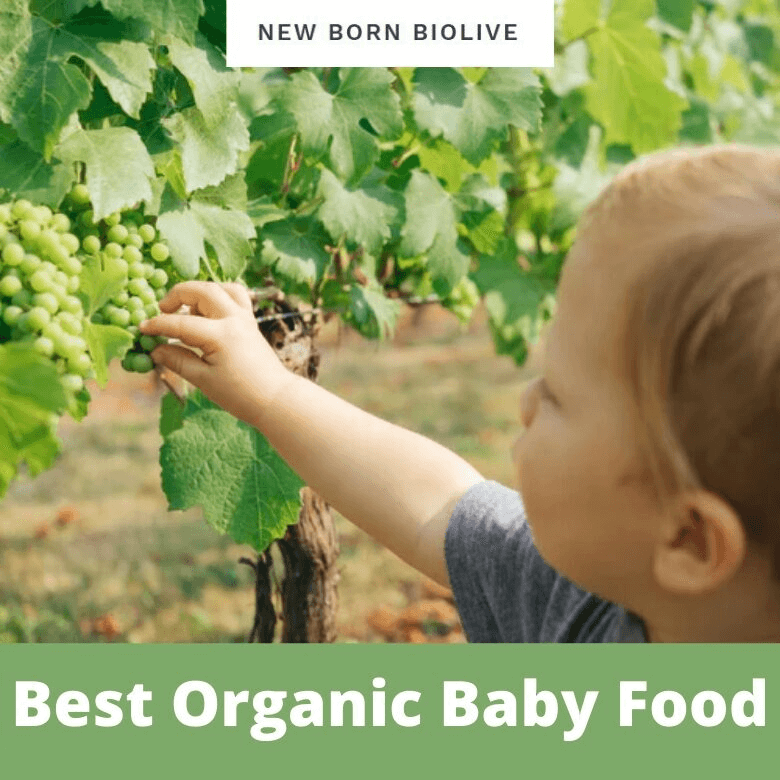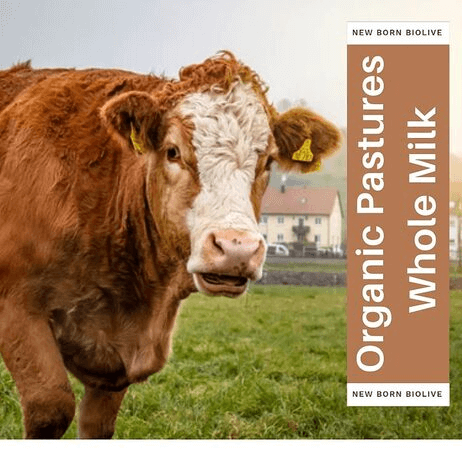When it comes to your child’s nutrition, the choices can be overwhelming. It’s not always simple to explain fact from fiction or to sort through the well-meaning, but often different, advice. So the big question — should you feed your child organic baby food?

Answer: opt for natural baby food whenever you can.
So, why go organic? We’re glad you asked! Here are 7 reasons to pick organic food over conventionally developed.
1. EATING GREEN
Growing and processing food products can be required in our environment, to say the least. Natural farming produces less pollution and creates less carbon dioxide than non-organic cultivation. Choosing organic foods means promoting sustainable farming methods, like composting and crop rotation. Quite simply, organic is an environmentally efficient choice.
2. KNOW WHAT YOUR BABY IS EATING
In Germany, the organic baby food needs to meet strict organic measures before it can be formally specified as organic. That means that the product going into your baby’s mouth has been strictly observed to ensure that it satisfies Organic Product Regulations: in other words, no artificial pesticides, antibiotics, artificial additives, or any other items that are not included on the German Food Inspection permitted substances list for verified organic products.
3. IT’S TASTY!

Most people agree that natural foods just taste better. Flavors are deeper, senses seem sharper, and feeding them is an all-around more delightful experience. Inspire your kids to eat organic foods like organic pastures milk for a lifetime by starting them off with yummy and fresh baby food that they will truly enjoy eating.
4. NO MODIFIED GENETICS HERE
You’ve probably heard a word or two about genetically mutated foods. More than ever before, genetically modified foods and crops are making up a bigger part of our diets—and our baby’s diets—although these foods are still experimental. Feeding your child organic food means restricting his or her exposure to genetically altered substances.
5. ORGANIC FOOD = REAL FOOD
Your baby needs Energy, not concocted junk and unnatural ingredients. Choosing real, natural foods means choosing the good stuff and bypassing the filler that offers no nutritional content (and that can even be harmful to your child or kids).
6. PESTICIDE-FREE, BABY!
Toddlers and kids are sensitive to toxins: even relatively cheap levels of pesticides in their diet could have long-term health effects on their small bodies. Opting for natural baby foods means lowering the risk of exposure to pesticides.
7. NUTRIENTS, NUTRIENTS, NUTRIENTS
You want to fill your baby’s stomach with a variety of healthful nutrients—and natural food like organic milk powder is a great way to do this.
Organic fruits are packed with even more formidable levels of antioxidants and vitamins than their non-organic counterparts. Need more possible? One study reported that natural strawberries contained 10% more antioxidants. The proof is in the pudding—er, fruits.
Love Baby Organics contains organic ingredients: every single component you’ll find in a Love Baby product is organic. That means that you can feel great about serving your baby our tasty, nutritious baby food, baby snacks, and all of our fresh products. Find out more about our baby care product- we love talking organic!



